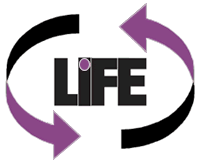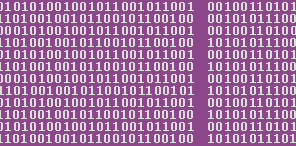

...helping to bring digital preservation to LIFE

LIFE1
The first phase of the LIFE project (LIFE1) ran for 12 months ending with the highly successful LIFE Conference on 20th April 2006.
Overview
LIFE is a project which aims to apply the theory of life cycle collection management to digital collections. The project will provide practical information for all institutions who have an interest in collecting and preserving digital material.
Background
For the past decade increasing numbers of electronic materials have been collected and accessed across an expanding array of institutions. There is still little information about the downstream costs of managing and preserving these collections. For collecting institutions to be able to make informed decisions about what to collect and what to preserve, there needs to be information available on the long term costs of collecting, accessing and preserving digital collections.
LIFE aims to isolate the stages in managing and preserving these resources and then to provide information about the costs and interdependencies involved.
Digital Collections
Printed collections have been collected, accessed and preserved by libraries and museums for hundreds of years.
In the past decade there has been a dramatic rise in the number of electronic publications and documents being produced and collected. These vary in format from academic, published electronic journals (e-journals) to digitisations of existing printed material to collections of emails from academics and writers. Despite the various formats these collections all provide similar challenges. These are different from those associated with the collection of traditional library material.
Life cycle collection management
All library material has specific and definable stages which arise in the course of its management. Life cycle management of library materials is a way of looking at all the stages in the life of an item and actively managing each stage to optimise efficiency.
Life cycle management of material is important because it provides a method of predicting all forthcoming costs associated with an item. If life cycle management is not used, then it is very difficult to predict the total cost of managing of a collection item over a long period of time.
Further details are available on our life cycles page.
Digital preservation
Digital preservation is becoming increasingly important as electronic collections increase in number and size. If you put a book on a shelf in a dark room, with luck, the book will still be in a readable form one hundred years later. The same is not true for electronic documents.
Rapid development of file formats, software and hardware means that a saved document can become very difficult to access in a comparatively very short space of time. Digital preservation aims to provide solutions to this problem to ensure that valuable digital collections will be accessible over the long term.
The project
LIFE will examine the life cycle of the management of digital materials with an emphasis on long term preservation.
LIFE will analyse specific digital collections at UCL Library Services and the British Library, and cost each stage in the life cycle to provide information about the total downstream costs. This information will be useful to everyone involved with the management of digital information.
In providing information about the life cycles of digital material with emphasis on digital preservation, LIFE will help to answer some key questions:
- what are the long term costs of digital preservation?
- who is going to do it?
- what are the roles and responsibilities of collecting institutions?
- when can institutions confidently collect digital material without its print counterpart?
The institutional context
UCL Library Services collects significant numbers of electronic resources, including over 7000 electronic journals. Information about the long term access to this material is vital to the support of the teaching, learning and research at UCL.
The British Library has diverse digital collections. These range from digitised materials, ejournals and beyond. The Legal Deposit Libraries Act of 2003 will enable the legal deposit of non print materials. The British Library has also had voluntary arrangements with publishers for voluntary deposit of e-materials since 2000. With a requirement to preserve this material in perpetuity the life cycle management of this material is very important.
The LIFE project continued to build on the work established in LIFE1, the 18-month second phase - LIFE2 - commenced in March 2007.
for enquiries contact life@bl.uk
LIFE (Life Cycle Information for E-Literature) is a funded by the Joint Information Systems Committee (JISC) and Research Information Network (RIN) and is a collaboration between University College London (UCL) and the British Library





